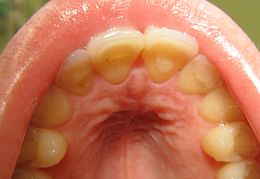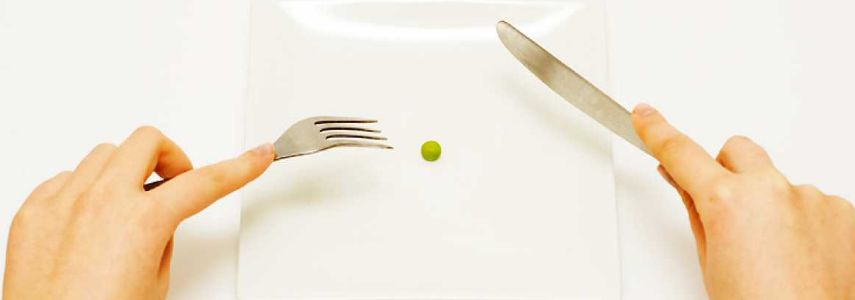Eating disorders are pathologies characterized by an alteration of eating habits and by an excessive concern for weight and body shapes.
Women are mainly affected, especially in the adolescent period. The spread of the phenomenon, in recent years and in more industrialized societies, has meant that there have been many information and awareness campaigns.
Today we are all aware of the psychophysical consequences that anorexia and bulimia entail, among the serious health consequences there are also those that affect the teeth.
Anorexia and bulimia: what consequences for oral health?
Anorexia and bulimia are two of the disorders of eating behavior, in the first case the fear of becoming fat becomes an obsession, even in the presence of a state of objective thinness. The person with anorexia exercises strict control over their hunger stimulus. Bulimia, on the other hand, is characterized by an uncontrolled food intake followed by behaviors aimed at avoiding a sudden weight gain. Both eating disorders are characterized by self-induced vomiting, the use of laxatives, the use of diuretics, spasmodic physical activity.
A competent dentist can notice the presence of eating disorders from some particular evidences present in the oral cavity: erosion of the teeth, ulcers in the mouth, dental sensitivity, soft tissue injuries.
Symptoms that highlight some of the pathologies that eating disorders can cause to the teeth:
- Dental erosion and dyschromia (color change)
- Dental sensitivity
- Thinning of the incisors
- Aesthetic and functional dysfunction
Dental erosion and dyschromia
 Continuous induction of vomiting leads to a sharp increase in the presence of acidic gastric juices in the oral cavity. The acids damage and demineralize the enamel of the teeth causing both erosion and dyschromia, in particular a yellowing of the teeth occurs.
Continuous induction of vomiting leads to a sharp increase in the presence of acidic gastric juices in the oral cavity. The acids damage and demineralize the enamel of the teeth causing both erosion and dyschromia, in particular a yellowing of the teeth occurs.
The severity of this phenomenon increases with increasing vomiting episodes.
Teeth sensitivity
The demineralization of the enamel also has other consequences besides erosion. The enamel has a protective function for the tooth, therefore its loss exposes the dentine to all stimuli increasing the sensitivity of the tooth to heat / cold, sugars and in general during chewing.
Thinning of the incisors
Among the teeth that suffer most from the consequences of eating disorders are the incisors, mainly because they have a thinner thickness and therefore it is easier for erosion to, in the long run, expose the tooth to fractures. The thinning of the incisors also involves an obvious change in the facial appearance.
Aesthetic and functional dysfunction
The loss of the enamel results in the shortening of the length of the teeth which entails the absence of adequate support for the lips which thin and collapse, greatly aging the appearance of the person. This process also affects the occlusion (closing of the mouth) and among the consequences there is also a significant reduction in chewing capacity.
How does a dentist intervene in cases of eating disorders?
The clinical approach for patients with eating disorders must necessarily be multidisciplinary: psychological, nutritional and pharmacological. For its part, the dentist can make timely diagnoses and proceed with therapies that can stem the consequences for the health of the oral cavity.
The dentist is therefore a fundamental professional figure for the diagnosis and treatment of pathology. In mild stages it can intervene with corrective therapies to slow down erosion of the teeth, in more advanced stages it can help the patient with conservative therapies (dental reconstructions) or with prosthetic elements.
For pathologies as delicate and complex as eating disorders can be, it is always advisable to encourage teamwork and collaboration between experienced and experienced doctors and professionals.
We remind you that at Sanident, in addition to the dentist, you will find all the professional figures necessary to help those suffering from eating disorders.
















